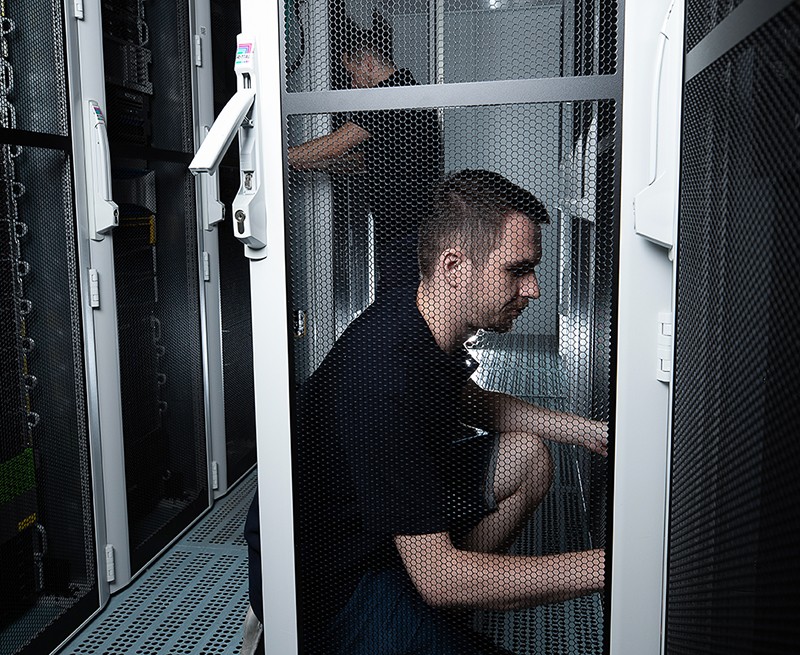Your server is continuously replicated to a secondary location, ensuring you are protected against unexpected hardware failures.
Why should you replicate your data?
Hardware failure backup
Protection against local outages
You can also opt for regular data replication to a geographically separate site (Prague–Brno), safeguarding your services even in the event of major local disruptions.
Protection of important data
You will appreciate the current state of the data, for example, in databases, whether it is orders for e-shops or mail servers, whose disruption might paralyse the whole enterprise running.
Uninterrupted running
Replicated data are immediately available to you, so that all business processes continue to work without restriction. Replication will ensure even higher availability for your solution.

How can you replicate
Synchronous Replication
With synchronous replication, data is written to both locations simultaneously, with no delay, minimising the risk of data loss. We perform synchronous replication between two active, geographically distinct sites within Prague.
Asynchronous Replication
With asynchronous replication, data is written to the secondary (replicated) site with a short delay. This approach reduces bandwidth and latency requirements, making it suitable for longer-distance replication. At MasterDC, we offer asynchronous replication between our data centers in Prague and Brno.
Other data protection options
Disaster Recovery
To restore the infrastructure, a simple replica is not enough. In case pf natural disaster or fatal data center failure, you will need Disaster recovery. Except for the current copy of data, we will also maintain computing capacity for you in the backup location. As you require, we will develop and implement a plan for the recovery of your IT.
Data storage
Replication will hold your data if one of the nodes fails. However, if you accidentally delete part of your database, unlike backups, it is very difficult to recover data from a replica. This is because any change to the write node is overwritten to the replicated node. For these cases, the data must be backed up to a data storage.



